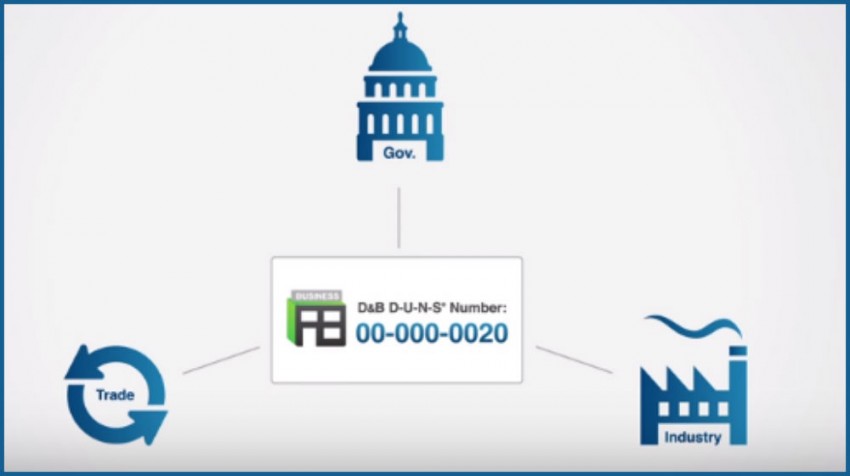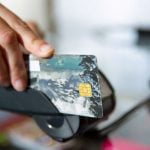
If you are a small business owner planning to bid on government contracts or grants, you first will need to obtain a Dun & Bradstreet D-U-N-S Number.
But you should get one anyway, even if you’re not seeking to bid on such projects.
Why?
By registering for the D&B D-U-N-S number and the business credit report to which it’s attached, your small business can realize a host of other benefits, such as helping grow your business by giving potential partner or client companies a compelling reason to want to work with you.
The D-U-N-S Number — a nine-digit identifier for a business, similar to a social security number assigned to an individual — is simply a reference to a D&B business credit report. Once you register for and are assigned the number, the business credit report (also known as a profile or file) is automatically created.
If Dun & Bradstreet already has information about your business (based on information from legal filings as well as trade references that other companies report), you should still apply for the D&B D-U-N-S Number. The existing information usually will then be matched to the newly created number.
In any event, when you apply for the number, keep in mind: “The more information you are able to include about your business the more robust your business credit file will be,” Amber Colley, business credit expert and director with D&B, told Small Business Trends in an email.
“When you file for your D-U-N-S Number, be sure to include as much information about your business as possible, otherwise your business credit report will be very sparse. Sometimes, some of your information is added to your business credit file when other companies provide trade references on your business, but that isn’t always the case,” Colley added.
D&B’s D-U-N-S (Data Universal Numbering System) Number is D&B’s proprietary means of identifying business entities based on location. A unique nine-digit identification number is issued for each of your company’s physical locations — free of charge for businesses required to register with the federal government for contracts or grants, the U.S. Small Business Administration notes.
“The D-U-N-S Number is assigned and maintained solely by D&B,” Colley said. The number assigned to each of your company’s locations “will remain with the company location to which it has been assigned even if it closes or goes out of business.”
The number references an important report that tells your business’s story, including its full formal name and “dba” (doing business as) name.
Also included are your mailing addresses, the names of principals, financial information, payment history, industry classifications — whether it’s a Standard Industrial Classification (SIC) or North American Industry Classification System (NAICS).
NAICS is used by federal agencies and has replaced the SIC to classify business establishments in terms of their relation to statistical data about the U.S. economy. Also part of the package is a company’s socio-economic status, government data (meaning public filings, such as lawsuits, liens and judgments for or against) and more.
The D-U-N-S Number, which also reveals links between member companies and corporate family trees worldwide, is widely used by both commercial and federal entities. It was adopted as the standard business identifier for federal electronic commerce in October 1994, Colley said.
In addition to helping companies obtain federal contracts, “a D-U-N-S Number assigned to a full business credit report can help give you credibility in the marketplace and may have a positive impact on your company’s cash flow,” Colley noted.
She added, “A robust business credit report can help demonstrate the size and strength of your business to potential customers, insurance companies, banks, vendors/suppliers and business partners.
“If you are looking to do business with a company or if you are trying to get access to capital, your business credit report may impact your ability to get funding or secure contracts.”
The report is able to do this because it includes various scores calculated based on information contained in your business’s credit report.
“The scores can predict the potential future strength of your company. A few of the predictive scores can predict the likelihood that your business will pay its bills on time, or potentially experience financial distress or potentially cease operations.”
“Predictive information about your company is driven from your company’s historical record on how you manage your business credit along with other data elements in the business credit report,” Colley noted.
The process of creating a D&B D-U-N-S Number for your business is free and typically takes about 30 business days.
You can get your free D-U-N-S Number by clicking here.
If you want the process of creating a D-U-N-S Number for your business expedited, you can apply for an expedited D-U-N-S Number and receive one in just five days.
If you need a D-U-N-S Number specifically to work with the Federal Government, you can get it here.
The process is simple; by clicking on the above links you can easily start creating a D&B D-U-N-S Number.
[“source-smallbiztrends”]




